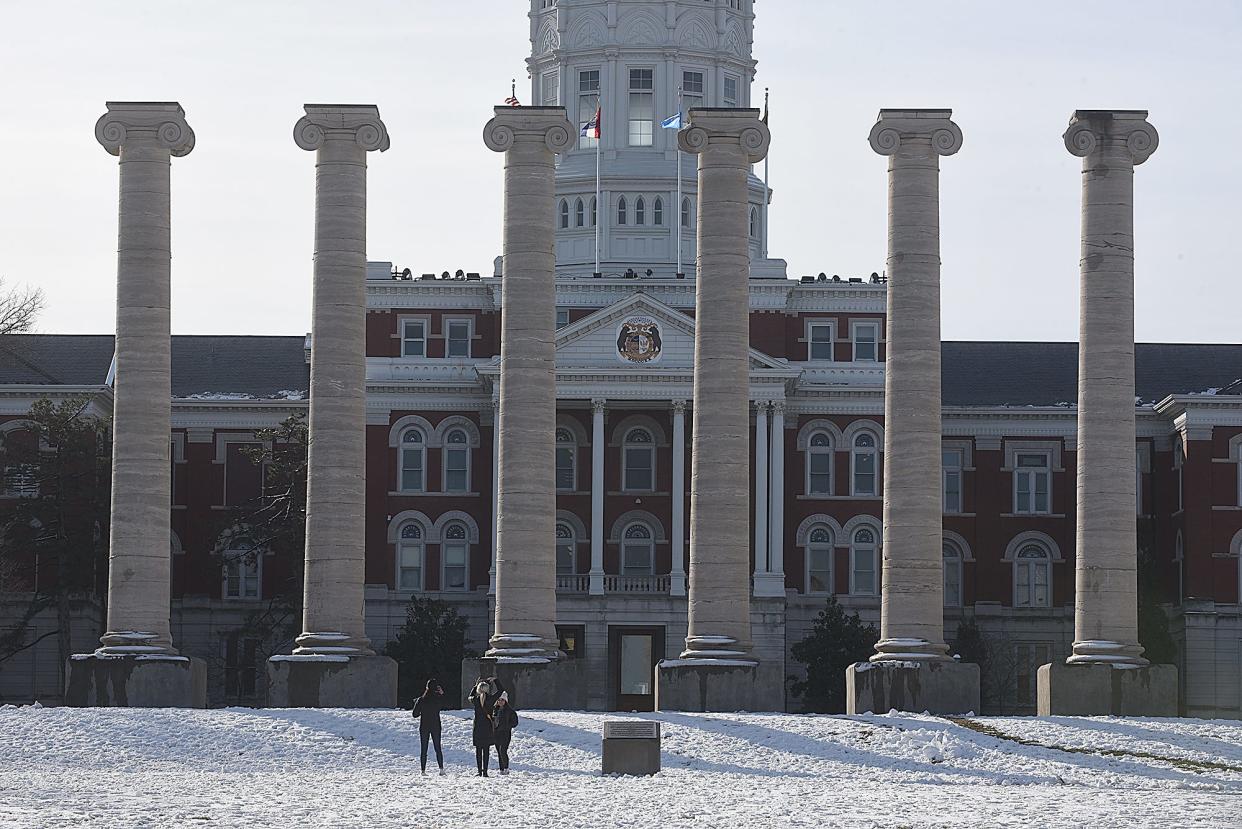'There should be some consequences': Students, others respond to lack of discipline for MU student's racist message

A sampling of students of color on the quiet University of Missouri campus on Tuesday said they were disappointed that officials won't discipline a student who sent a racist message that became public.
The three students said the lack of action was expected from MU.
The chairwoman of the MU Faculty Council's Inclusion, Diversity and Equity Committee said officials condemned the speech but must respect the First Amendment.
The president of the Columbia NAACP said the university is wrong not to discipline the student.
The students were interviewed in the MU student center.
After a review by the Office of Institutional Equity, university officials determined the racial slur was in a direct message last month to a friend and didn't harass any individual. The message became public when it was posted on Twitter by another student.
The Snapchat message used a racial slur, stating that if four more Black people were killed students would have the entire week off.
Taking action against racism isn't a priority for the university, said Alyssa Fritz, a senior natural resources major from Kansas City.
"I think, yes, there's freedom of speech," Fritz said. "But if someone's affiliated with the university, there should be some consequences. Expulsion or something. I don't know the solution."
The response is in line with other university actions, she said.
"They've also done things like defend a racist statue," Fritz said of the Thomas Jefferson statue near Jesse Hall.
The third U.S. president owned enslaved people, but university officials have disregarded student calls to remove it or even post a sign explaining Jefferson's multiple identities.
No action was the expected action, said Marc Poland, a junior communication major from New Jersey.
He knows there are free speech protections under the First Amendment, he said.
"I get that, but it's kind of a cop-out for them not wanting to discipline the student," Poland said.
"Disgraceful" is how Kearra Rentie, a junior business student from Kansas City, described the decision.
"Even if it's protected by the First Amendment, I think they kind of pick and choose what they take action on," Rentie said.
It took a very long time for the university to do anything in response to the fraternity hazing of student Danny Santulli, with state law behind them, she said.
Anti-semitism would have received a bigger response from the university, she said.
Rentie said the university didn't yet risk repeating the student protests of 2015.
More people have to become outraged for that to happen, she said.
Pam Bruzina, chairwoman of the Inclusion, Diversity and Equity Committee of the MU Faculty Council, said she understands the reasoning behind the university's decision.
"It doesn't mean they're OK with what happened," Bruzina said. "When it came out, they condemned it pretty clearly."
Told of the student responses, Bruzina said the university does care.
"We care a lot about racism and all the other -isms," Bruzina said. "I know it could feel like the university doesn't care, but we do."
Her committee works closely with Maurice Gipson, MU vice chancellor for inclusion, equity and diversity, she said.
"I hope people understand that MU condemns hateful speech and hate speech, but we also value the First Amendment," said Bruzina, professor of nutritional sciences.
MU chancellor and system President Mun Choi called Mary Ratliff, president of the Columbia NAACP, she said.
"I am in total disagreement with him," Ratliff said of the decision not to discipline the student.
"Institutions and organizations need to take a stand" against racism, Ratliff said outside Monday's Columbia Board of Eduction meeting. "We need to stamp this out."
Blacks for too long have been treated like second-class citizens, she said.
Roger McKinney is the Tribune's education reporter. You can reach him at rmckinney@columbiatribune.com or 573-815-1719. He's on Twitter at @rmckinney9.
This article originally appeared on Columbia Daily Tribune: Students say lack of action on racism is on brand for MU officials

